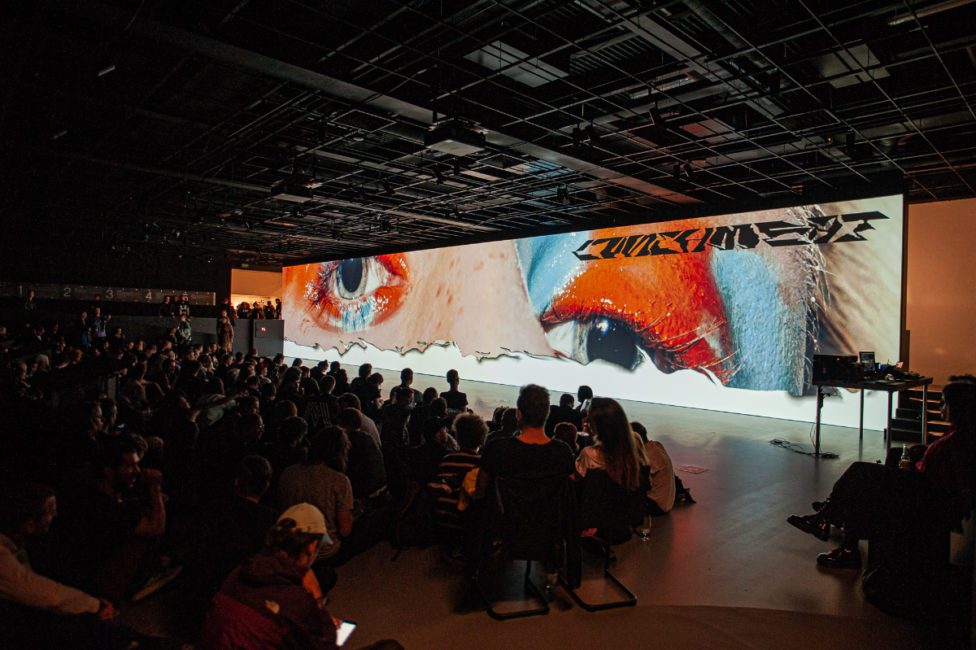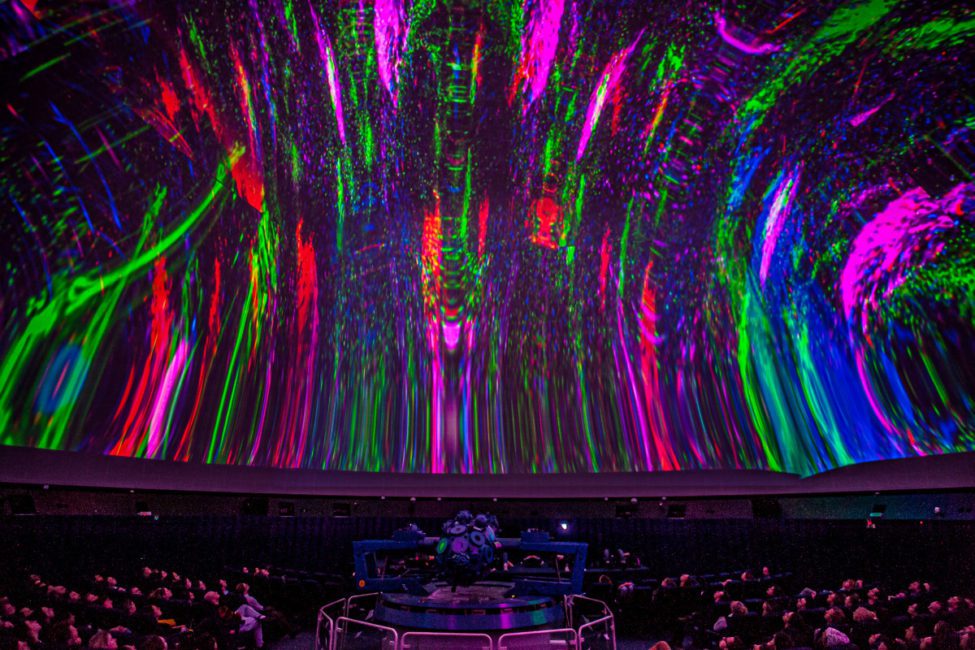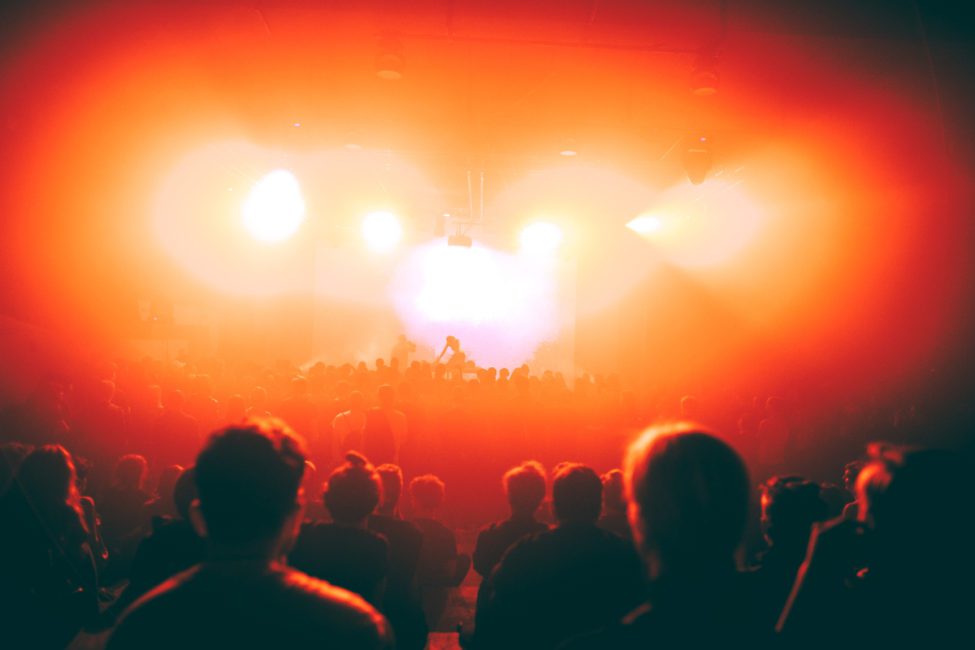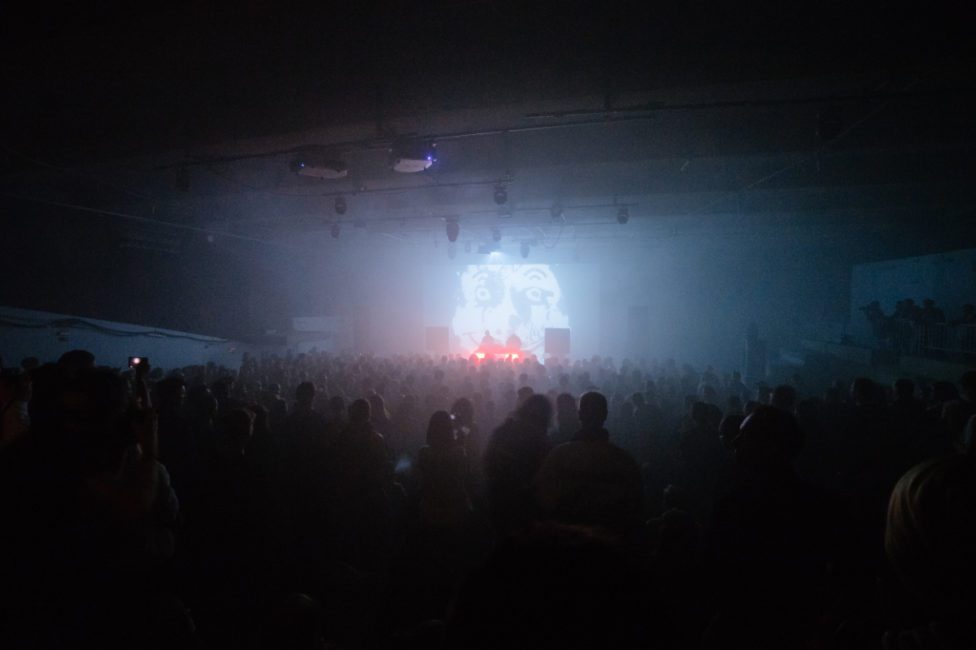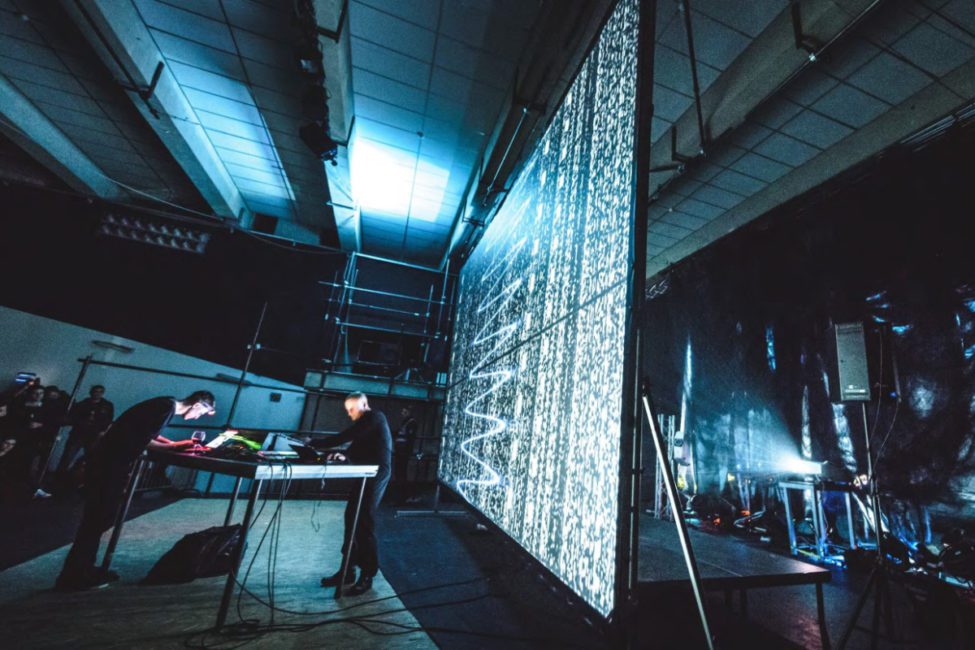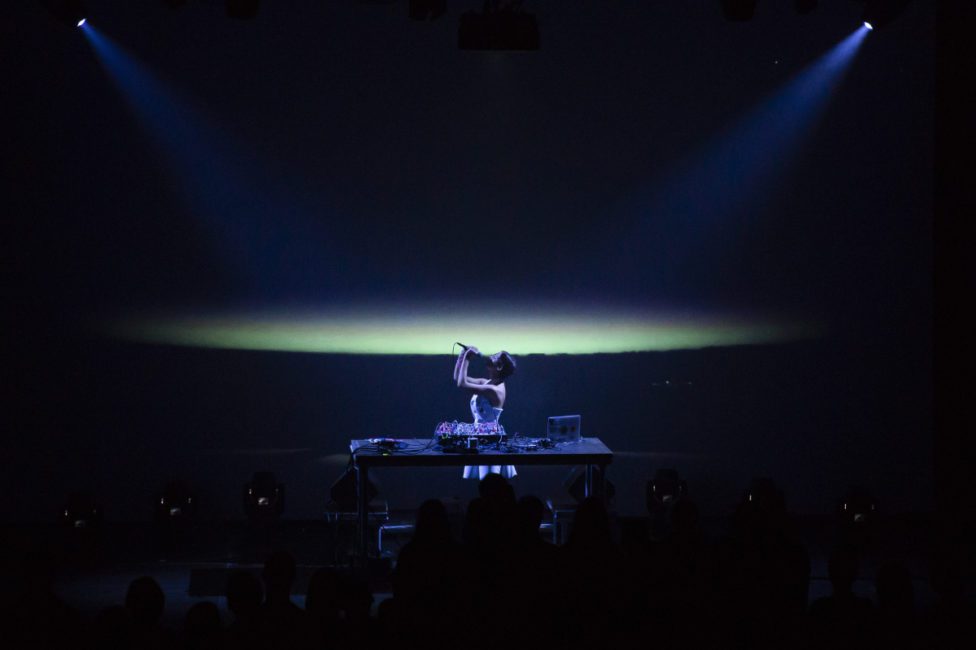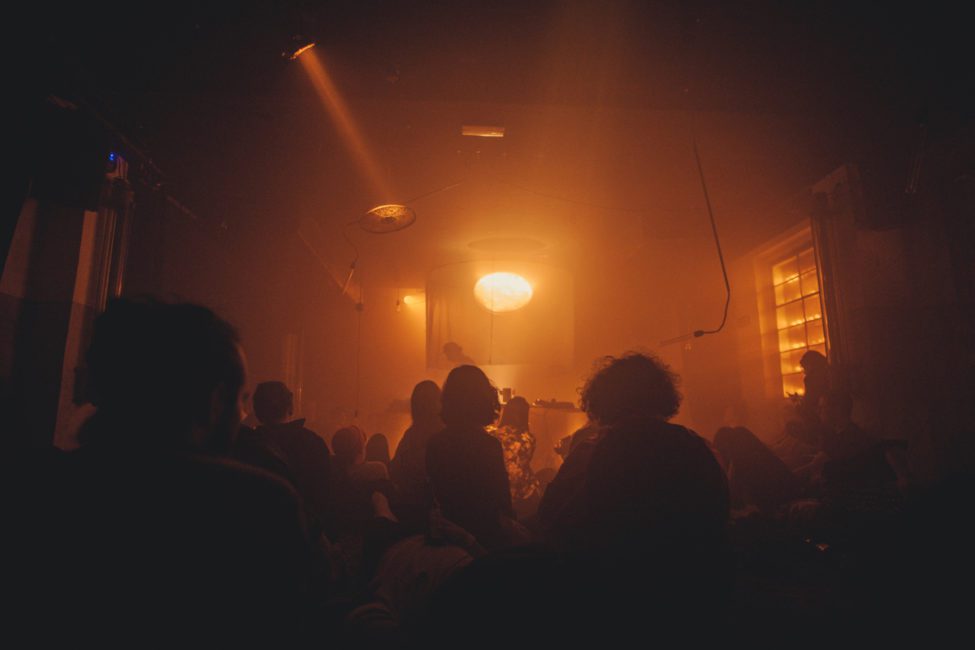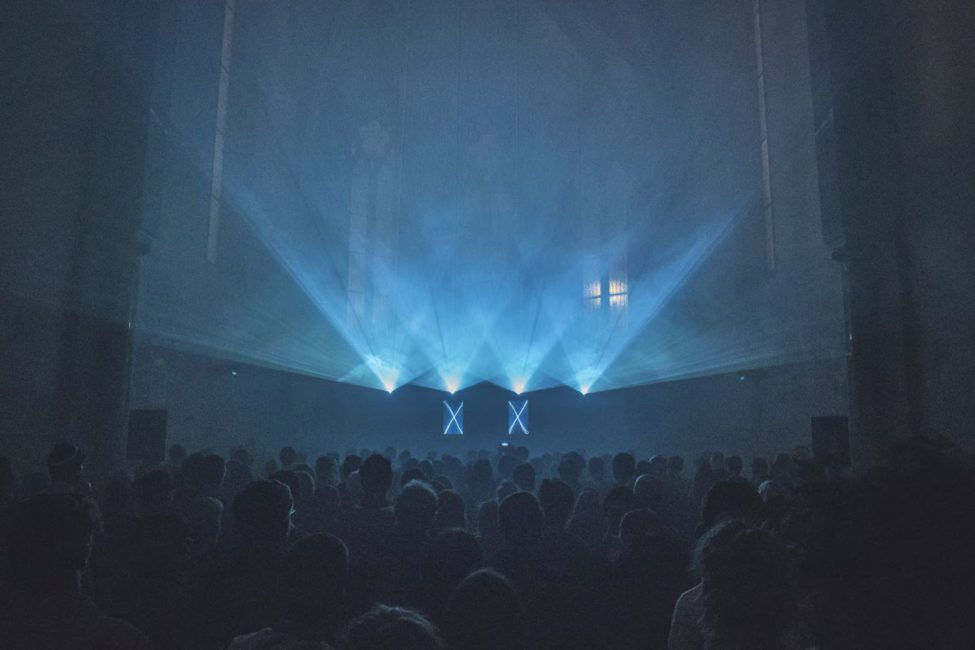Despite the challenges of COVID-19, the 11th edition of Lunchmeat takes place this week in Prague. Ahead of the event, we caught up with founder and director Jakub Pešek, to find out about the founding principles of Lunchmeat, and their determination on presenting an international festival dedicated to advanced electronic music and new media art amidst a global pandemic.
Interview by Tom Durston & Freddie Hudson

"We knew that something was missing in Prague, and Lunchmeat fills that void"
Lunchmeat was founded in 2010. Please can you set the scene for what the condition of Prague’s experimental music scene was like a decade ago?
When we started Lunchmeat the demand here in Prague was mostly for Drum & Bass. There was one event called Sperm Festival who put on an interesting lineup of experimental acts, but they didn’t run for too long. We had the UK dubstep community visiting Prague quite often, including Kode 9, Shackleton, Mala and many others who would play on maxed-out sound systems, in super small events of just 50 – 150 people.
That was pretty much all that was going on. My introduction to experimental music started at a CD rental shop in Prague, where you could rent a CD for £1. By coincidence I started listening to Amon Tobin, Aphex Twin and Squarepusher – these three producers formed my first experiences with this type of music.
What’s the story behind the name Lunchmeat?
The name Lunchmeat is inspired by our collective efforts. We do everything, from programming to motion, graphics; everything is mashed together to form a lunchmeat.
What was your initial idea for Lunchmeat?
Back in the days I was working as a cameraman and did some animation work too. I went to Berlin in 2007 to attend the Pictoplasma Conference, which is focused on character design.
I met a guy called Acampante, from Argentina, who, besides his creative works, ran a festival near Buenos Aires focused on graphic design. He had a successful graphic design studio, which he decided to close, and run the festival and tour as an A/V artist.
We agreed to put on a gig with him when he was next in Prague, I think it was around 2008 or 2009. Due to his performance it was an audio/visual focussed event, so we invited local acts and artist to host lectures. That was the inaugural edition of Lunchmeat.
The progression toward a more music-focussed line up was organic. We searched for more broadly-known musicians and established the festival to keep it all going, we knew that something was missing in Prague, and Lunchmeat fills that void.
Who’s behind the visual identity of Lunchmeat?
It changes. Over the past four years we’ve cooperated with our colleagues in crime, Czech graphic design studio Anymade Studio. They understand what we do, and we love their expressions. They’re friends, so it works well.
The locations that the festival utilises are notable. Can you please tell us a bit more about the venues that hold the events and how you’ve come to host there?
It’s a matter of being offered the space by other venues. In 2013 we started working with the National Gallery of Prague. We also started working with the Planetarium, an impressive space with a 25.5 meter sphere, which has allowed us to present new projects with a unique and immersive perspective offered to the audience. Dasha Rush’s live show there was incredible.
There’s also the impressive space offered from CAMP – aka Center for Architecture and Metropolitan Planning. They reconstructed a brutalist building designed by a famous Czech architect Karel Prager, which now operates as a gallery, library and venue for events and lectures. They’ve also got a great projector, allowing projection mapping in a 16:9 ratio at 20 x 4 meters comprising of five projectors, which we cannot wait to use.
In recent years we’ve worked with the well-known Prague techno club Ankali. New places mean new experiences for our audience, and our performing acts as well.
We are also lucky enough to work with the best Czech audio companies, such as ROBE for lights and KV2 Audio. For me, that’s a really big success that we can work with local partners.
This year, the main nights on Thursday, Friday and Saturday will held in the National Gallery, but we’re also using the CAMP venue and a theatre called Archa, which is well-known and with a brilliant sound.

"The name Lunchmeat is inspired by our collective efforts. We do everything, from programming to motion, graphics; everything is mashed together to form a lunchmeat"
What does it take to put on an event such as Lunchmeat?
A lot of time, effort and money. We are super proud to host an event of this magnitude in Prague. It’s a must to keep on going in Corona times as artists and technicians need our support. We have to keep on going, whilst being careful and responsible. Otherwise everything will break down.
Can you tell us a bit about the team involved with Lunchmeat and what they get up to when not running the festival?
The festival is almost a side-project for us. We’re all part of a creative studio, and that’s what provides us our income for living. Running a festival like this is a full-time job, containing this kind of experimental music, is impossible in the current Czech environment. There’s just not enough demand to make it big.
How many people do you have working on the festival?
In the beginning I was doing the majority of the work, raising funds, curating lineups, taking care of artists, sticking up posters around the city — pretty much everything. There were about three of us working like this. Some friends started to help out too.
I would say that the core Lunchmeat team is composed of seven people. If we include the organisational teams, such as stage managers, it’s around 15 people. All in, there are 50 people in total.
Festivals typically rely on the creative and physical efforts of individuals and collectives also involved in the local scene in other ways. Is this the case with Lunchmeat? Can you introduce us to a few?
We reach out to like-minded friends and collectives to get help from people in the same scene. We’ve worked with Polygon a few times, who are also affiliated with Ankali.
Personally – I’d like to attend Lunchmeat as an attendee. Prague lacks media structure, so we try to bring artists that are quite unknown within the country so it’s hard to persuade the masses to come.
In this sense, Lunchmeat is a pioneering, underground event, even though there are partners involved. We’re slowly finding our audience of people who are hoping to see the unexpected.

"I think we’re in a really great position of showing the world that events - of any scale, despite restrictions - can still happen"
We can’t avoid asking about COVID-19. You’ve obviously faced some significant challenges, how have the government supported you?
We have received funding from the City of Prague and from the Ministry of Culture. The situation is that these organisations are very supportive and there are no cuts so far.
In this way things are very different to the rest of Europe, maybe the world. Clubs were open throughout Summer in Prague. Some didn’t have a complete program but you could still go out to events.
At this moment, we cannot cancel the festival. The audience, artists, and of course our team are in motion. There is of course a big risk with COVID-19, but it doesn’t mean that we should cancel everything. Our role here is to try and present something even if it means limiting the programme and numbers of attendance.
Of course, we have maximised health and safety regulations as we have to find a way to keep pushing things forward. Even though visitors and musicians from Germany and the UK will have to isolate after the event, we’re still seeing a lot of them choosing to attend because they support what Lunchmeat does.
I think we’re in a really great position of showing the world that events – of any scale, despite restrictions – can still happen. Hopefully, we can encourage other venues that they can also try and do something, even if they don’t have funding from the government.
What is the capacity of the festival this year?
We’re hoping to have a maximum of 300 people this year. The Government-imposed a limit of 500 people, but as the festival is taking place in the National Gallery of Prague, there’s a chance that there’s going to be a big focus on our behaviour.
We want to be 100% sure that Lunchmeat has a positive outcome, which is why we’re limiting the capacity to 300.
There are two stages, The Concert Hall and Club Stage, which are just divided by a wall, one next to the other. In previous years, we’ve been able to switch the performances from one to the other as we go throughout the night, and even increase the capacity beyond 800 people after midnight.
This year we can’t go beyond midnight, so we’ve shortened nights and added local A/V acts and live musicians to give a performance all through the night.
Lastly, out of the stellar lineup, can you please list three performances that you are particularly looking forward to witnessing?
That’s a complicated question! As I am doing the booking, the entire lineup would make the cut. We are always trying to create a new experience of combining the work of musicians with visual artists. Here’s are some of my favourites:
Maenad Veyl & Geso — Geso is creating a special set design, and new visuals in cooperation with Maenad, which is definitely what we’re into at Lunchmeat.
Nonotak — I’m really looking forward to this French A/V duo. They performed at Lunchmeat 2014, that was one of their first shows ever. Since then they’ve developed a lot, playing at big festivals. They now return to Prague with a new show, using translucent meshes and screens. We actually used to do this with the studio, but we never advanced to this quality. It’s a really amazing project, mixing layers in 3D space to create something almost holographic.
Nkisi and the Axis Archestra — We’re bringing Nkisi to Ankali, we really admire what she’s doing with her music and she’s going to be bringing two special shows to our favourite club.
Inverted Audio is an official media partner of Lunchmeat Festival. Follow our happenings on Instagram.
Photography by Gabriela Prochazka, Tomas Carl Allen, Karolina Kučerová, Jan Rozsypal, Ondrej Eliasek, Honza Kolar, Lukas Havlena.
LUNCHMEAT 2020 LINEUP
404.zero presents Black Sunday AV live
Anthony Linell & Ali M. Demirel present Winter Ashes AV live
Axis Arkestra presents Axis Shift, Telepathic Encounters live
Elektrabel & æoe AV live
Ethno Service & Štěpán Marek AV live
Glory Affairs
Helena Hauff dj set
Know V.A. & Omar El-Sadek AV Live
Maenad Veyl & Geso AV live
Nina Pixel w/ Adrián Kriška present Ancestral Archeology AV live
NIVVA AV live
Nkisi
NONOTAK presents Shiro AV live
Robert Henke presents CBM 8032 AV live
Sam Rolfes 360° AV experience
Shackleton Live
Sophie live
Tadej Droljc presents Žarkolom AV live
